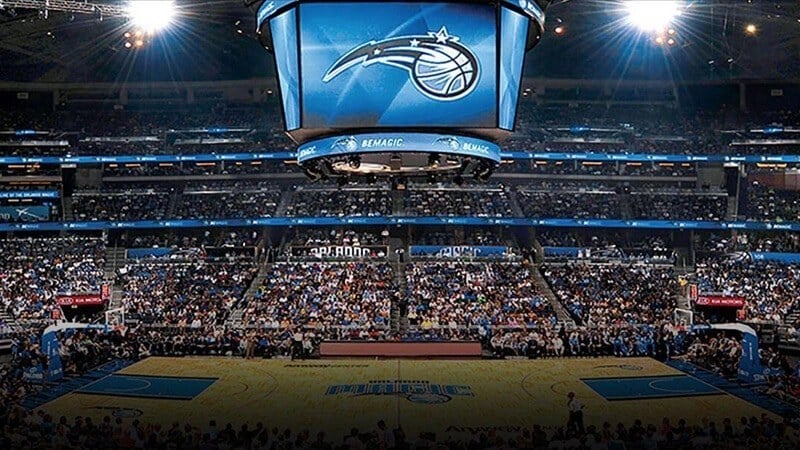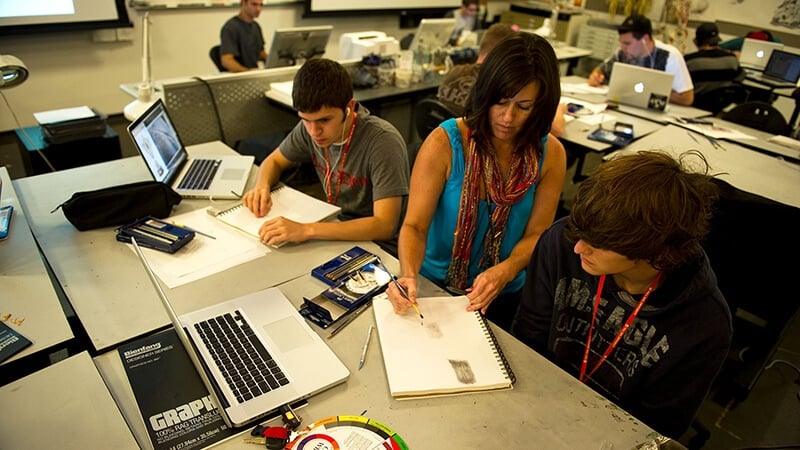Pro Advice
The Benefit of Good Foundations: An Interview with Course Director Jeff Schaetzel
A former director of ESPN’s “SportsCenter,” Jeff spoke to us about how aspiring sportscasters can navigate an ever-changing industry.
What’s the number one skill a burgeoning sportscaster needs to achieve success?
You might guess an encyclopedic knowledge of sports history and player stats. A sportscaster needs to be calm and collected in front of the camera, and they need to be able to process information quickly to provide real-time analysis during gameplay. While those abilities are important, there’s one fundamental skill anyone working in sports media needs to perfect before heading into the job market – writing.
“The core of good programming begins with good writing,” says Jeff Schaetzel, a course director for Full Sail University’s Dan Patrick School of Sportscasting. “Part of our job is to define the skills needed to achieve success. Writing and interviewing are huge. No professional sportscaster takes those skills for granted and neither should our students.”
Jeff teaches the program’s foundational course, Introduction to Sportscasting. With over 20 years experience working for companies like CNN and ESPN, Jeff’s seen his share of changes affect the industry. As a director for ESPN’s flagship program, SportsCenter, he witnessed the shift from analog to digital technologies, the rise of social media-driven journalism, and the evolution of sports programming from a handful of channels to more than 35 national broadcast networks.
These are largely positive changes, he says, but in order for new professionals to stand out, they’ve got to rise above the competition. This means they have to be at least as good as the guys who are broadcasting, but also better than upstarts producing their own web series, podcasts, and blogs.
With that in mind, Jeff worked with his former ESPN colleague and program director Gus Ramsey to design a course that combines a comprehensive overview of the history of sportscasting with practical, hands-on creative projects.
“I like to tell my students that I’m ruining the viewing experience for them forever,” Jeff says, laughing. “One of their first projects is to create a highlight. To do that, they need to watch games and log them, which can be tedious, but it develops the editorial eye. We present them with a slate of games and ask them which one is important? How do you find a story angle that provides content to the audience? We have them reverse-engineer a rundown, where they watch a show and then break it down into individual components.”
This cerebral, deconstructive approach to teaching is a carryover from Jeff’s time at ESPN. Over the years he saw SportsCenter grow from three shows per day to seven. The evolution of SportsCenter imbued him with the ability to plan and problem solve for any scenario.
“Live production is an intricate dance of instructions and executions to get everybody on the same page. I won’t say we perfected that during my time at ESPN, but we improved the workflow with every generation of the show. I logged 1,000 shows in my first five years. In that time, I made every mistake,” he says. “But I also learned how to fix them.”
Now, Jeff’s passing that experience on to his students. He couldn’t have predicted the tech boom or the rise of sports media at the beginning of his career, but Jeff thrived in his role at ESPN because he possessed good foundational skills – everything from editing a highlight to leading a team. He was set up for success even when the nature of his work changed. He hopes his class does the same for his students.
“On my first day here, I was so impressed by the concept of supporting the dreams of the students,” he says. “As to the industry, we’re not sure what the next five years will bring. But if we can arm our students with good skills and the benefit of wisdom and experience, it will allow them to absorb and respond to changes quickly. It will prepare them to fulfill those dreams in sustainable ways.”
Whether you’re ready to apply or just want to learn more about Full Sail University, our Admissions Representatives are here to help. Call us or request more information.
Keep Exploring
- Hall of Fame
- Scholarships
- Courses
- Simulation & Visualization
- Accolades & Awards
- Life at Full Sail
- Computer Science
- Government
- Industry Research
- Show Production
- Emmys
- Business Intelligence
- Before You Start
- Course Info
- Course Stacks
- Sports Marketing & Media
- Media Communications
- Career Development
- Music & Recording
- Graphic Design
- User Experience

